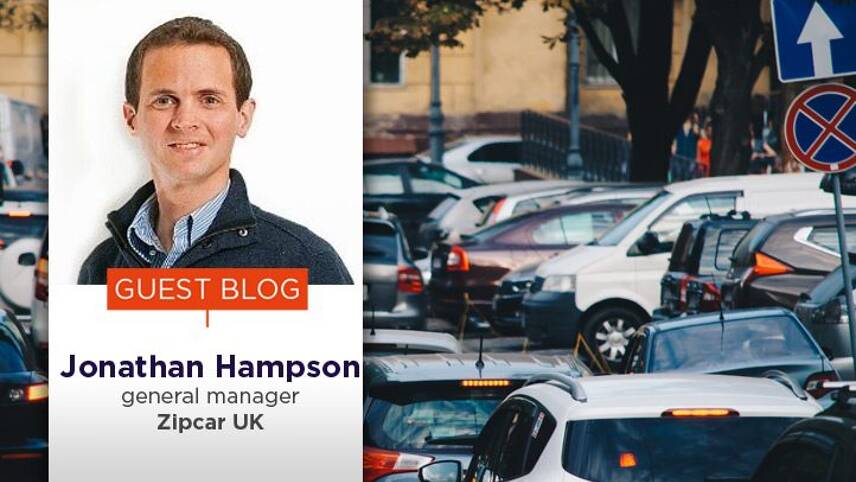Register for free and continue reading
Join our growing army of changemakers and get unlimited access to our premium content

After months, if not years, of build-up, London’s Ultra Low Emission Zone (ULEZ) is finally in operation. Zipcar UK fully supports the leadership position that London has taken with this.
As I sit here writing this blog, there is direct action on the streets of London demanding action on climate change, but it should not take such protests to remind us of why we need to change the way we do things if we are to secure the future, not just of our cities but of our planet. As Londoners, the congestion and poor air quality we face provides a daily and real reason as to why radical change and bold innovation is so badly needed.
And we’re not the only ones to support this change: we recently polled London’s private car owners to find out what they thought of the new ULEZ charge, with 58% of respondents saying it was a good thing for the capital and 47% saying they would use their car less as a result.
Of course, this is just phase one of the new ULEZ; by the time it’s fully rolled out in 2021 it will span the whole of inner London between the North and South Circulars and affect many more Londoners and businesses in the capital every day.
It’s a big transition which will require a huge behaviour shift. And like all big changes, it’s not an easy one. This is especially true for London’s small business community, whose importance in London should not be underestimated. SMEs make up 98.8% of London’s private sector businesses and SME employment makes up half (49.8%) of the capital’s employment. They play a key part in London and indeed the UK’s economy and right now, as they deal with political and financial uncertainty, it’s not an easy time.
And while it’s undeniable that ULEZ is a good thing for London, it also presents new challenges for many of London’s small businesses who rely on one or a fleet of vehicles in their day to day dealings, but can’t afford to use vans and cars that don’t comply. In fact, recent Federation of Small Business research found that unlike private car owners, many small businesses had concerns about the ULEZ and its potential negative effects on their business.
However, there are solutions out there. Our Zipcar for Business team works with and speaks to a wide range of small businesses in London every day, from florists and market traders to interior designers and medium to large organisations, helping them use our fleet rather than having to operate their own. As Zipcar members, they have already embraced the idea of car and van sharing for their business and as a result, ULEZ doesn’t present the huge challenges it does to others.
To help other small businesses make the switch to car and van sharing and reduce the pressures brought about by the ULEZ, we recently announced that we’re helping TfL by offering a bespoke package that provides match funding for those planning to scrap their diesel vans and ‘free for life’ Zipcar UK business accounts.
Different businesses have different needs when it comes to transport, which means that car and van sharing will not be the catch-all solution to all SMEs’ ULEZ challenges. Yet it presents a great opportunity for London’s SMEs to embrace car and van sharing as part of their solution, which in part will prompt behaviour change and reduce private car and van ownership. This is essential because, ultimately, this is the only way forward for London if we want to make it the greener and more sustainable city we all want and need it to be.
Zipcar at edie Live
Jonathan Hampson is general manager at Zipcar UK. He will be giving a talk at edie Live about “Achieving Mission Possible: Moving from ambition to action with your sustainability strategy” on 21st May 2019 at 11.45am at the Birmingham NEC.
The session is just one of many taking place across four theatres during the two-day show, which is edie’s biggest of the year and a highlight in the calendar for sustainability, energy and environment professionals. Under the theme of “turning ambition into ACTION”, we will be bringing attendees the inspiration and solutions needed to achieve a low-carbon, resource efficient and profitable future for their organisation.
Register for your free edie Live 2019 pass here.



Poll saying "47% saying they would use their car less as a result". I wonder. basically if you have almost any petrol car, or a recent diesel, the ULEZ is an irrelevance. Likewise, if you live in the suburbs, and rarely if ever drive into central London, again it’s an irrelevance even if you drive an older diesel that would e subject to the charge. So for the vast majority of London car owners, it is unlikely to affect them. And I personally doubt that this will cause that majority to change behaviour and use their cars less, just because some older cars in inner London may be subject to a significant daily charge. When the zone is extended in 2021, it may begin to bite – but until then, I’d be surprised.
That’s not to denigrate the Zipcar model which is an excellent way of (a) ensuring that people use lower emission vehicles and (b) reducing overall miles driven (people relying on shared cars are more likely to consider & use public transport), but I don’t think that the ULEZ will have an enormous short-term effect.